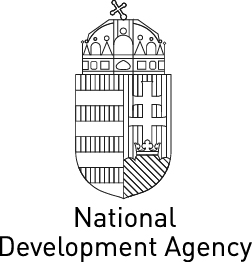EU Grant Disbursements Greatly Speed Up31 January 2012
The effective work of the institutional system has greatly accelerated the disbursement of EU development grants, and substantially increased EU funds, MTI was told by Zoltán Petykó, President of the National Development Agency (NDA).
Disbursements which averaged HUF 5.5 billion per week under the previous Government were raised to HUF 15 billion per week in the first year, and this figure reached HUF 19.7 billion in 2011 Q3, explained Mr Petykó. The NDA has set a target of disbursements of HUF 30 billion each week, he stressed, adding that the system needs further improvement, without forgetting in the final analysis that the institutional system has less resources than in the previous period.
The President of the NDA said that the number of contracted projects has increased dynamically over the past 12 months compared to previous years, from 103 to 179 per week on average. In terms of this indicator alone, the NDA is 75 percent faster than it was under the previous Government. By the same standards, the volume of disbursements has increased by 176 percent.
This year, over 7,600 grant decisions have been made in the amount of HUF 850 billion, and approximately 8,400 contracts have been concluded in the amount of some HUF 900 billion. This year’s total disbursements of nearly HUF 800 billion affect approximately 15,400 projects. Based on data of 1 November 2011, Hungary ranks fifth among EU member states in terms of all interim payments, Mr Petykó explained.
The President of the NDA highlighted that the administrative burdens of the institutional system increased towards the end of the year, and that priority tasks will continue to include a prompt and regular settlement of beneficiary invoices in this period, too. In his assessment, Hungary is all in all making the right use of EU funds. This was especially confirmed by the annual overview meeting held in early October, where European Commission representatives acknowledged the considerable progress made in 2011.
Mr Petykó added that the National Development Agency has taken several steps to speed up procedures over the past period. It ordered the contributing organisations to process delayed cases. Also, not only has regulation become more uniform, but implementation has also become faster, simpler and more transparent through the adjustment of the legal environment. To this end, the NDA and several contributing organisations have introduced several e-tender applications allowing faster administration, and have applied and adhered to shorter through-put times.
According to plans, in 2012 grant decisions will be made in the amount of over HUF 1,500 billion. Within the programs of the New Széchenyi Plan, the 2012 budget is expected to comprise the disbursement of approximately HUF 1,400 billion of EU funding. This will largely contribute to Hungary’s renewal, economic development and social reinforcement, added Mr Petykó.
He also said that all tasks related to project planning and management and to the coordination of inspections will speed up in the future, and work will be done to achieve IT developments for further decreasing the administrative burden, to simplify licensing and financing processes, and in connection with the regime of subsidies.
The largest transfer of funds between Operative Programmes in 2011 affects the Green Economy Development Programme within the New Széchenyi Plan. An amount of HUF 160 billion will be transferred from the Transport Operative Programme to the schemes of the Environment and Energy Operative Programme which support the effective use of energy and the increased use of renewable energy sources. On account of high demand, the various Environment and Energy Operative Programmes have by now fallen short on funding. Funds will therefore be reallocated to areas where they are sure to be quickly and efficiently utilised.
Zoltán Petykó added that the plans for 2012 of the Social Infrastructure Operative Programme include two calls for bids of a considerable amount, one aimed at infrastructure development supporting a structural change in in-patient care, in the amount of HUF 44 billion, and the other aimed at creating equal access to public services, in the amount of HUF 8 billion.
The Social Renewal Operative Programme is also expected to announce tenders of a considerable amount, such as innovative school development (HUF 30 billion), on-the-job-training support (HUF 21 billion) and health promotion in public education (HUF 20 billion).
Among the tenders planned for 2012 within the Economic Development Operative Programme, a sum of HUF 27 billion is earmarked for supporting competition-boosting programmes, and a sum of HUF 15 billion for supporting innovation and technological parks, said Mr Petykó.
The Regional Operative Programmes include plans to develop healthcare tourism services with funding of HUF 14 billion, and primary and out-patient care from HUF 4 billion, said Zoltán Petykó.
Source: MTI

